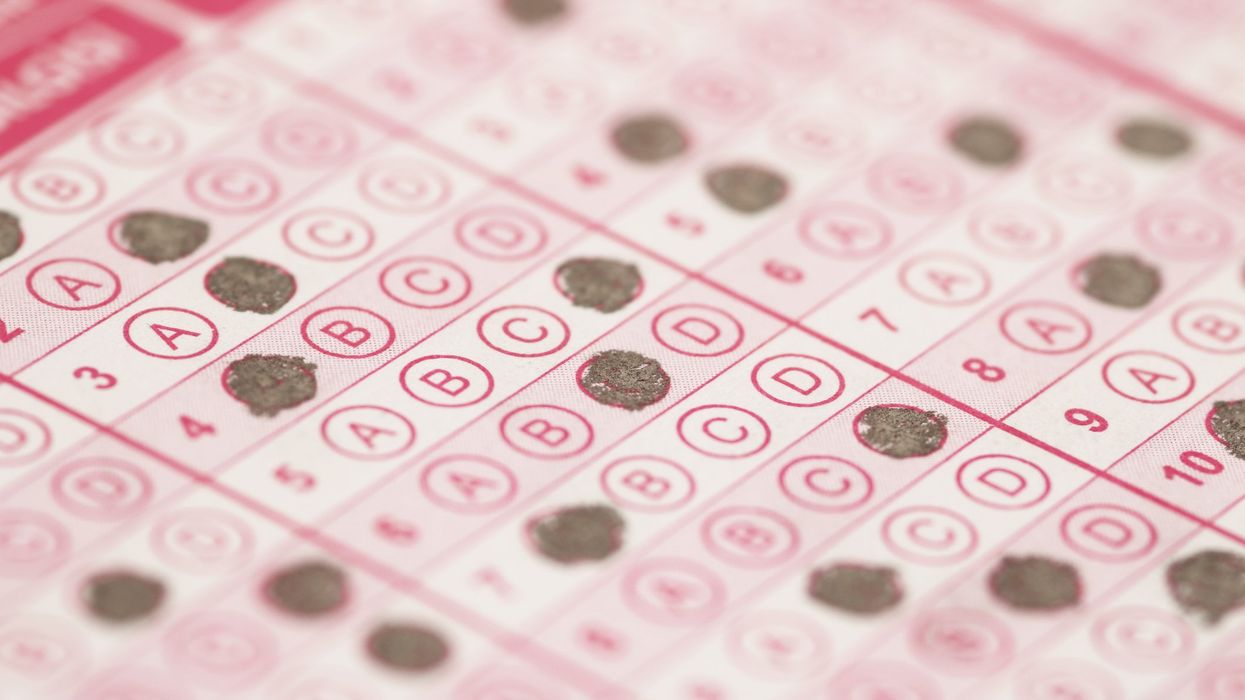 In this photo released by the official website of the Iranian supreme leader's office, Iranian well wishers attending the speech of Supreme Leader Ayatollah Ali Khamenei hold up his picture at a mosque inside the leader's housing compound in Tehran, Iran, Saturday, Feb. 16, 2013. Khamenei said Saturday that his country is not seeking nuclear weapons, but that no world power could stop Tehran's access to an atomic bomb if it intended to build one. (AP)
In this photo released by the official website of the Iranian supreme leader's office, Iranian well wishers attending the speech of Supreme Leader Ayatollah Ali Khamenei hold up his picture at a mosque inside the leader's housing compound in Tehran, Iran, Saturday, Feb. 16, 2013. Khamenei said Saturday that his country is not seeking nuclear weapons, but that no world power could stop Tehran's access to an atomic bomb if it intended to build one. (AP)
TEHRAN, Iran (AP) -- Iran's Supreme Leader said Saturday that his country was not seeking nuclear weapons, but that if Tehran intended to build them, the U.S. couldn't stop it.
Ayatollah Ali Khamenei, who has the final say on all state matters in Iran, also rejected direct talks with the U.S. over its nuclear program despite the pressure of sanctions.
"We believe nuclear weapons must be abolished and we have no intention of building" such weaponry, Khamenei said in remarks posted on his website, leader.ir. But he added: "If Iran had the intention to build nuclear weapons, the U.S. could in no way stop the Iranian nation."
He said Tehran would hold talks with the U.S. if Washington respects Iran's rights instead of resorting to bullying.
"They want to deny the Iranian nation of its definite and inalienable right to uranium enrichment and peaceful use of nuclear energy. Of course, they won't succeed," Khamenei said.
Addressing a group of Iranians at his home in the capital, Tehran, Khamenei also scolded President Mahmoud Ahmadinejad and his conservative rivals for factional fighting, saying they should unite rather than quarrel at a time when the West was stepping up sanctions on Iran.
Iran recently has highlighted a religious decree Khamenei issued more than seven years ago that bans nuclear weapons in an effort to back up its claim that Tehran's nuclear program is being used for peaceful purposes and medical research. Iran authorities often cite the decree to counter Western suspicions that Iran could ultimately move toward an atomic bomb.
Although Iran views Khamenei's 2005 fatwa as a binding declaration, the West and its allies have repeatedly accused Iran of using any tactic to prolong the standoff over its nuclear program, and possibly advance its nuclear capabilities. Iran denies such aspirations, insisting it is enriching only to make reactor fuel and to make isotopes for medical purposes.
Tehran, however, has left U.N. nuclear inspectors empty-handed when it comes to addressing Western suspicions that it's conducting tests related to nuclear weapons. Three rounds of talks last year made no headway on the West's main demand: That Iran halt its highest-level uranium enrichment.
Washington and others worry that this level of nuclear fuel, at 20 percent enrichment, could be turned into warhead-grade material much faster than the 3.5 percent enriched uranium needed for Iran's lone energy-producing reactor. Moreover, the U.S. has expressed concern that Iran and the International Atomic Energy Agency had not agreed to let inspectors visit a military site, known as Parchin, where the U.N. agency suspects Iran might have carried out nuclear weapon trigger tests.
Moreover, Iran recently said it had begun installing a new generation of centrifuges at its main uranium enrichment facility in Natanz, a move that will allow it to vastly increase its pace of uranium enrichment in defiance of U.N. calls to halt such activities.
Iran is living under stepped-up Western sanctions that include a total oil embargo and banking restrictions that make it increasingly difficult for Iran's Asian customers to pay for oil deliveries. Tehran insists the sanctions won't force it to give up its nuclear program.
"Sanctions hurt the people. But there are two options. One is to surrender and repent in the face of the bullying powers like weak nations," Khamenei said. "The other is to activate domestic resources and capabilities like a brave nation and triumphantly pass the danger zone. Undoubtedly, the Iranian nation has chosen the second option."
Khamenei also called on rival politicians to avoid quarrels, an apparent reference to a power struggle between Ahmadinejad and his conservative rivals in parliament ahead of the June presidential elections.
Khamenei was referring to a barely audible videotape showing Fazel Larijani, the brother of parliament speaker Ali Larijani, in a meeting where he allegedly sought a bribe in return for ensuring the support of the speaker and another brother, who is chief of the judiciary.
Ali Larijani denied the charge saying he had no business relation with his brother. He accused Ahmadinejad of having a "Mafia-type" attitude and said the president was disregarding the country's dignity, law and ethics.
--
Related:

 In this photo released by the official website of the Iranian supreme leader's office, Iranian well wishers attending the speech of Supreme Leader Ayatollah Ali Khamenei hold up his picture at a mosque inside the leader's housing compound in Tehran, Iran, Saturday, Feb. 16, 2013. Khamenei said Saturday that his country is not seeking nuclear weapons, but that no world power could stop Tehran's access to an atomic bomb if it intended to build one. (AP)
In this photo released by the official website of the Iranian supreme leader's office, Iranian well wishers attending the speech of Supreme Leader Ayatollah Ali Khamenei hold up his picture at a mosque inside the leader's housing compound in Tehran, Iran, Saturday, Feb. 16, 2013. Khamenei said Saturday that his country is not seeking nuclear weapons, but that no world power could stop Tehran's access to an atomic bomb if it intended to build one. (AP)


